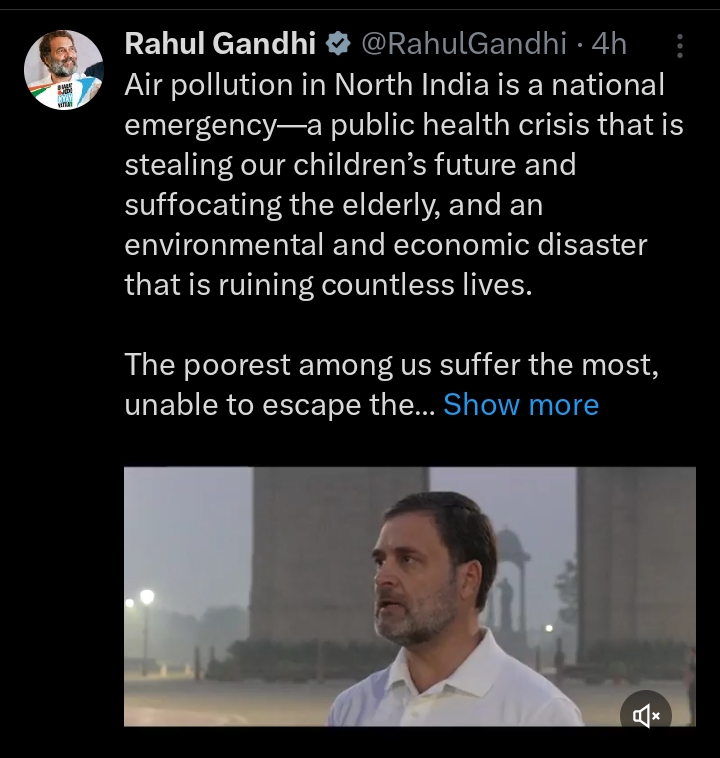Leader of Opposition in the Lok Sabha, Rahul Gandhi, on Friday described the severe air pollution in northern India as a “national emergency,” urging a collective response rather than political finger-pointing. The Congress leader emphasized that the crisis is not only a public health issue but also an environmental and economic disaster.
Sharing a video of his conversation with environmentalist Vimlendu Jha on X (formerly Twitter), Gandhi highlighted the devastating impact of the pollution on children, the elderly, and vulnerable communities. “Air pollution in North India is a national emergency—a public health crisis that is stealing our children’s future, suffocating the elderly, and ruining countless lives,” Gandhi wrote.

Several cities in northern India, especially Delhi, Noida, Ghaziabad, Gurugram, and Faridabad, have been grappling with hazardous air quality levels for weeks, prompting widespread concern over the health of residents. Gandhi pointed out that it is the poor who suffer the most, as they are often unable to escape the toxic air.”
The toxic air is taking a toll on families, children are falling sick, and millions of lives are being cut short,” Gandhi said. He also noted the economic repercussions of the pollution, such as the decline in tourism and the harm to India’s global reputation. “Tourism is declining, and our global reputation is crumbling,” he added.
Gandhi stressed the need for a coordinated and decisive approach to tackling the crisis, stating that it would require major changes from governments, industries, experts, and citizens alike. “Cleaning it up will need a collective national response, not political blame games,” he said.
As Parliament prepares to reconvene for the Winter Session in the coming days, Gandhi noted that lawmakers would be reminded of the urgency of the issue as they endure the effects of the pollution, such as irritated eyes and sore throats. “It is our responsibility to come together and discuss how India can end this crisis once and for all,” he said.
Delhi’s Air Quality Hits Severe Levels
The air quality in Delhi has remained in the “severe” category since November 16, with the Air Quality Index (AQI) reaching alarming levels. On November 15, Delhi’s AQI recorded 396, categorizing it as “very poor.” This is the fifth consecutive day of severe pollution. The city has faced similar pollution streaks in the past, with the longest being seven days in November 2017 and 2016.
In response to the hazardous air quality, Delhi authorities implemented Stage IV restrictions under the Graded Response Action Plan (GRAP), including a ban on construction and demolition activities, school closures, and strict vehicular restrictions.
Gandhi’s remarks underscore the urgency of addressing the pollution crisis, calling for a unified and long-term strategy to protect public health and the environment.



